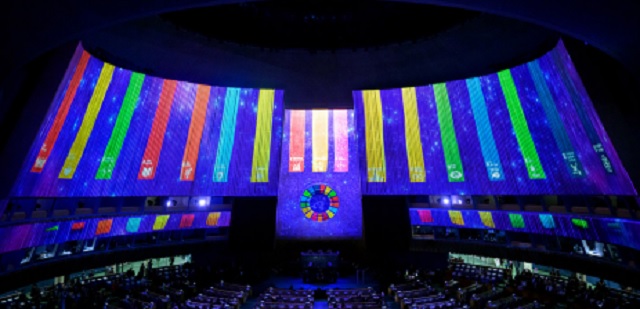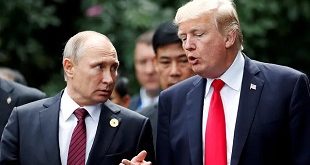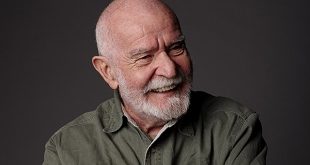
World leaders urged to commit to progress on pandemics, health for all
ANALYSIS | THE INDEPENDENT | The World Health Organisation (WHO) has urged leaders meeting at the 78th session of the United Nations General Assembly (UNGA 78) in New York to put health for all on the highest political agenda.
WHO’s appeal comes as the world faces multiple humanitarian and climate-related crises which are threatening lives and livelihoods around the world.
WHO’s call to accelerate the achievement of health targets comes ahead of the Sustainable Development Goals Summit (SDG Summit) and an unprecedented number of health-focused high-level meetings at UNGA, aimed at strengthening pandemic prevention, preparedness, and response, delivering universal health coverage (UHC) and ending TB.
As government leaders gather to make commitments around three major health issues, they have a chance to demonstrate that health is an investment, not a cost, and is fundamental to thriving, resilient families, societies and economies.
“If COVID-19 taught us nothing else, it’s that when health is at risk, everything is at risk,” said Dr Tedros Adhanom Ghebreyesus, WHO Director-General. “The pandemic caused enormous economic, social and political upheaval, and stalled or reversed progress towards the health-related targets in the Sustainable Development Goals. The UN General Assembly is the moment for world leaders to show they have learned the painful lessons of the pandemic, and to take concrete steps towards a healthier, safer and fairer world for all people.”
Progress in reducing infant and maternal mortality has stagnated (in some regions, rates have even increased) and progress in tackling infectious diseases like HIV/AIDS, tuberculosis (TB) and malaria has faltered. Many parts of the world are also seeing rollbacks of sexual and reproductive health and rights. Access to life-saving tools is uneven across the world, with millions unable to afford or obtain needed care. Noncommunicable diseases and mental disorders, which account for over 70% of deaths globally, threaten social and economic development everywhere. Yet new technologies and a renewed commitment to equity and sharing, following the pandemic, are positive developments.
“Ill health robs individuals, families, communities and entire nations of opportunities to grow and flourish,” Dr Tedros said. “The fact that billions of people cannot access or afford essential health services exposes them to poverty, easily preventable and treatable diseases like TB, and to the impact of future epidemics and pandemics. In WHO’s 75th year, we are reminding the world of what our founders affirmed: that health is not only a fundamental human right, but also the foundation of safe, peaceful and prosperous societies.”
Dr Tedros will lead WHO’s delegation to UNGA and, along with senior leadership, will participate in high-level meetings along with a number of other events, including the launch of an updated UHC Global Monitoring Report.
Walk the Talk
The WHO Walk the Talk on Sept. 17 in New York’s Central Park will kickstart UNGA78, promote physical and mental health, and will also celebrate WHO’s 75th anniversary. Opening at 7 am, Walk the Talk New York will be open to all people to run, walk and use their wheelchair over an approximately 4-mile route. Performers and speakers will include Hip Hop legend Doug E. Fresh, Kim Sledge of award-winning band Sister Sledge, globally renowned dancer and development advocate Sherrie Silver, 3-time Grammy Award winner Ricky Kej, the Global Scrub Choir of singing health workers, WHO Goodwill ambassador Cynthia Germanotta and former world marathon champion Paul Tergat.
At the SDG Summit on 18 to 19 September, Heads of State and Government will take stock of progress on the midpoint to 2030 and in the context of multiple global crises ̶ including SDG3 to achieve healthy lives and well-being for all.
On 20 September, the UN High-Level Meeting on Pandemic Prevention, Preparedness and Response (PPPR) aims to give Member States a forum to discuss how to prevent and prepare for pandemics and the health, social and economic consequences, by involving all government sectors. The outcome will be a declaration that aims at mobilizing political will at the national, regional and international levels. Themes for two panels during the meeting focus on ensuring equity through governance and accountability as well as building capacity and harnessing timely, sustainable and innovative financing and investment.
The 21 September High-Level Meeting on Universal Health Coverage convenes countries and stakeholders to accelerate progress toward health for all. Discussions will include a review of implementation of the 2019 Political Declaration as well as noting gaps and solutions to move towards universal health coverage by 2030.
On 22 September, the High-Level Meeting on the fight against tuberculosis (TB) reviews the achievement of TB targets set out in the 2018 Political Declaration of the first General Assembly high level meeting on TB. Stakeholders will identify gaps and solutions to accelerate progress towards ending the tuberculosis epidemic by 2030 and ensuring equitable access to prevention, testing, treatment and care.
 The Independent Uganda: You get the Truth we Pay the Price
The Independent Uganda: You get the Truth we Pay the Price



